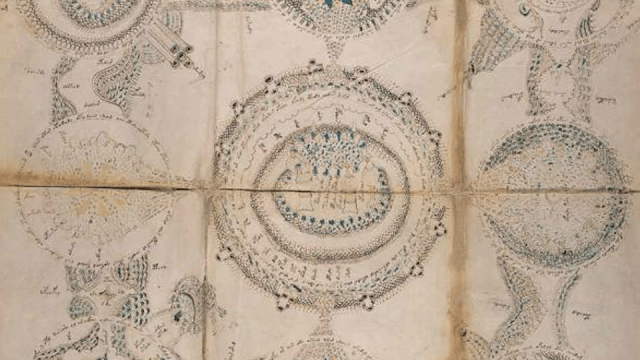A university in the United Kingdom is backpedalling after publishing an article claiming that one of their scientists helped crack the famously indecipherable Voynich manuscript, according to a statement.
The manuscript dates back to the 15th century, and Polish book dealer Wilfrid Voynich purchased the book in 1912. Since then, cryptographers have worked to decode the book’s mysterious language. No attempt has been verified.
Earlier this week, the University of Bristol claimed that one of its researchers had cracked the script and, as has happened several times before, experts are refuting the claims.
The (now deleted) May 15 University of Bristol press release declared that “A University of Bristol academic has succeeded where countless cryptographers, linguistics scholars and computer programs have failed”. The paper cited by the press release, published in the peer-reviewed journal Romance Studies by University of Bristol researcher Gerard Cheshire, breaks down the manuscript letter by letter.
It claims that the manuscript is written in a “Proto-Romance language”, and is a “compendium of information on herbal remedies, therapeutic bathing and astrological readings concerning the matters of the female mind, of the body, or reproduction, of parenting, and of the heart in accordance with Catholic and Roman Pagan beliefs…” and compiled by a Dominican nun.
Like other past claims, this most recent claim was accompanied by a barrage of press from tabloids and other sites repeating the text of the press release.
But immediately, the challenges began rolling in. “Sorry, folks, ‘proto-Romance language’ is not a thing. This is just more aspirational, circular, self-fulfilling nonsense,” Lisa Fagin Davis, executive director of the Medieval Academy of America, tweeted.
“I tried several years ago to reproduce Cheshire’s Voynich results, because initially I was intrigued. But when you apply his Roman-letter substitutions and then try to translate the result, you have no choice but to be subjective. It’s gibberish. The methodology falls apart,” she tweeted later.
“Regarding the decipherment of the individual symbols, a number of people have come up with a mapping to Latin letters, but those mappings rarely agree with each other, or with this proposal,” Greg Kondrak from the University of Alberta told Jennifer Ouellette at Ars Technica.
All of the pushback prompted the University of Bristol to retract their press release and issue a statement, which ended: “Following media coverage, concerns have been raised about the validity of this research from academics in the fields of linguistics and medieval studies. We take such concerns very seriously and have therefore removed the story regarding this research from our website to seek further validation and allow further discussions both internally and with the journal concerned.”
Claims that the Voynich manuscript have been solved are about as common as claims of proofs of the Riemann hypothesis, most recently from Turkish electrical engineer Ahmet Ardiç who claimed that the text is written in old Turkish, and television screenplay writer Nicholas Gibbs who claimed it was mainly Latin abbreviations, Ars Technica reported.
It’s always exciting — but new announcements rarely hold any water.
How did all of this happen? First off, “peer review” is an important first step in the scientific process, but it is not a stamp of approval. It’s like a restaurant telling you that the food is cooked — it might still be awful or give you food poisoning. Peer reviewed papers are frequently retracted or corrected.
Then there’s the science media hype-pipeline. Universities will find an interesting paper and summarise it in layperson terms uncritically for a press release. Many online news sites will pretty much parrot the press release with a sexier headline without vetting the claims.
The more in-depth analysis is usually left to a select few news outlets — but inevitably, factually accurate stories are less interesting than the press release or come out after the hype train has left the station.
Anyway, the Voynich manuscript is probably not decoded. Maybe it will never be completely decoded! But if you want the full truth behind a wild claim, it’s usually worth waiting a day or two to see how the experts have weighed in.
